Kathoc Bose 3: The Place of the Women
The women touched him lightly, turning him this way and that, as if he were a sort of rare specimen.
Review Kathoc Bose 1 Kathoc Bose 2
Kathoc Bose 3: The Place of Women
Iz-lâ waited beyond the woods, her eyes fixed on the path that rose into the low hills. The men would come today to the Place of the Women. Would Kathoc Bose be among them? Her skin warmed at the possibility, her body awoke.
The women were making a peppery stew with dried fish and they were baking squash bread in preparation for the men’s visit. They’d packed nine baskets with crocks of honey and bundles of edible roots, small cakes and mu tea for their men to take back with them.
The men caught the fragrance of the women’s spicy cookery in the air as they climbed through the dry grass, and quickened their pace. They were carrying with them gifts of fruit, goats’ milk and fish for their women. They brought shell bracelets and small hand-crafted tools.
From the daily log of Kathoc Bose:
Day 47. Learning the language of Veylas has proven difficult for me. I speak like a child. It disappoints me, but the men find my lack of skill entertaining. Today I meant to say that I would go to milk the goats, but, instead, I said I would go to lick the goats, which the others found amusing. Fahlo corrected me. The word I needed was “breelah”, not “bralah”. I don’t mind their teasing. I’m a stranger among them and they’ve taken me in as one of their own. Fahlo and Brahn are learning English quickly.
Day 48. I still have no answers as to how I arrived at this place called Veylas. I fear I never will. So much of my memory is gone. Still, I believe I am happier here than I ever was on Earth, with its constant chaos caused by the unremitting short-sightedness and stupidity of my species. The Velasím appear to be non-competitive. I have witnessed no aggression.
Day 49. Tomorrow I’ll go with the men for the second time, to “na bahn kaa-preesa”, the Place of the Women. It’s about three miles away, an hour’s walk from the edge of the sea where we live, to the low yellow hill where the women have their homes.The men and women of this Gather respect and care for each other, but they don’t share a dwelling place. They tell me it has always been so. Fahlo explained to me that the women don’t want to live with men. He said it is because men are “beasts”. I don’t think he means to say beasts; it must be a mistranslation. The men and women come together only two times in each cycle of the moon, and the moon cycle of Veylas appears to be about forty-two days. But I’m not exactly sure of that.
Day 50. The Place of the Men— where I stay, smells of fish and leavened bread, of charred driftwood and ashes. It’s dark and warm in the mens’ homes, quiet, conducive to contemplation. In addition to daily fishing and the making of bread, the men shepherd the fruit trees, mill grain, tend the small goat-like animals and craft what is needed from stone and wood. They are the teachers of their boys. Each night there is a beach fire and chanting.
Day 51. The homes of the women are different. They are full of light – white and airy. Their homes smell of herbs, beer and cider, of mown grass and the wood bark used in the coloring of yarn. The sounds of chatter and song fill their space from sunrise to sunset. The women teach the girls to grow and preserve greens and root vegetables, to brew beer, tend bees, spin and weave.
Both the women and the men of the Gather are tellers of stories and keepers of history, artists, musicians and dancers.
I am curious about these women who live apart, and how they relate to their men. But first I will need to conquer their language.
Kathoc’s first visit to the Place of the Women, was twenty days ago.
“I bring to you a new friend,” Fahlo had said. “This is Kathoc Bose and he comes to us from a distant place. He has become lost and will live with us until he is found.”
“I, Kathoc Bose, greet you in friendship, and will do no harm.” He attempted this ritual greeting in their language, as Fahlo had instructed. He raised an open hand to each woman, one at a time.
The women welcomed him in turn, each politely laying a hand upon his head and pronouncing his odd-sounding name as “ká-tok-bōs.” All twelve women, young and old, surrounded Kathoc and carefully studied him; they didn’t hide their curiosity. He was shorter in stature than the Veylasím, but clearly, he was not a child. They touched him lightly, turning him this way and that, as if he were a type of rare specimen. They made soft comments to each other and nodded. Kathoc looked at Fahlo for a sign of approval. He couldn’t be sure; he understood so little of what they were saying.
They gave him a place at the table – offering a feast of stew and bread and leafy greens. There were piles of fruits similar to figs and melons. The pitchers of foamy warm beer were refilled many times. And there were the sweet, minced bites that Kathoc found irresistible.
After the meal, they included him in their dances. The men and women held his hands as they moved in a circle and laughed as he stumbled through the intricate steps. Even on Earth he wasn’t skilled at dancing, but he participated willingly, apologizing and laughing at himself along with them.
As evening became night, the children and elders went to their beds, and the men and women gathered around the fire. A book-teller recounted a story long into the night. Three women had taken the hands of men and walked away, coupled, into the darkness. A woman came to Kathoc Bose and presented herself to him as Iz-lâ. She was taller than Kathoc by a few inches, She was not beautiful, but she was slender and graceful and her loose hair was the soft brown of a deer. Her eyes were warm. She reached out and confidently took his hand. His heart lurched. He had been chosen.
Iz-lâ took Kathhoc through the trees to her small home. She made a fire and filled a large cup from a ceramic jar. She crushed dried leaves in her hand and sprinkled them into the cup. She brought the cup to him and said, “Saalem, Ká-tok Bōs. Mahn keeram baht.” He took it and drank deeply. She smiled and proceeded to relieve them both of their robes.
The following morning, Kathoc stepped through the doorway into the bright sunlight, visibly shaken. The men noticed a disoriented look on his face, his unsteady legs. Some looked concerned for him, others scarcely stifled their amusement. Fahlo walked with him to the breakfast table.
“I am not good this morning,” he said in his very rudimentary speech. Maybe … was a tea … Iz-lâ give to me. She say drink, make me strong. I think she say this.”
“Yes. And did it? Did it make you strong?”
“I … I can’t remember.”
“Maybe it was the tea. Or possibly Iz-lâ’s strength? Do not worry, my friend. With time you will … adapt. Our women… they are most demanding.”
“Yes, I understand now. Men visit the Place of the Women only two time .. at one moon-cycle.” He smiled. “It is … enough!”
Next: Kathoc Bose 4




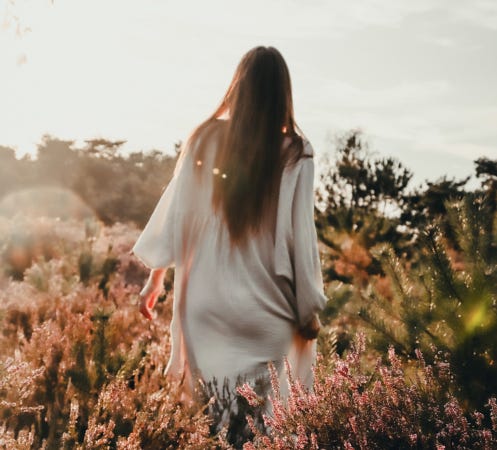
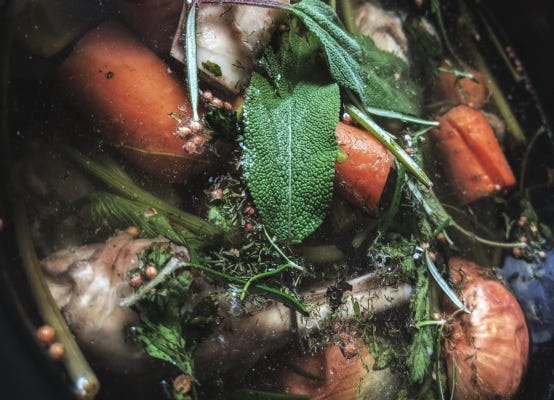
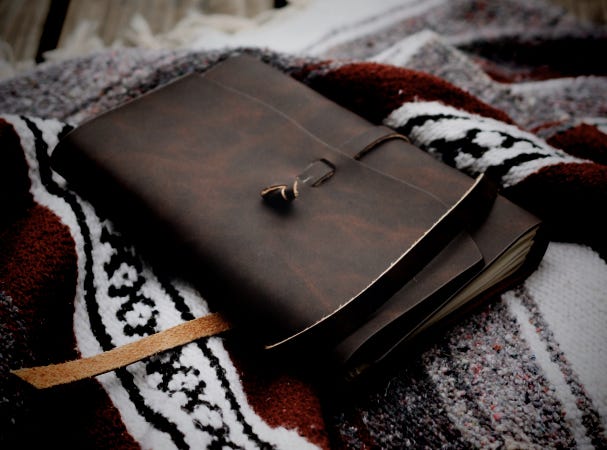
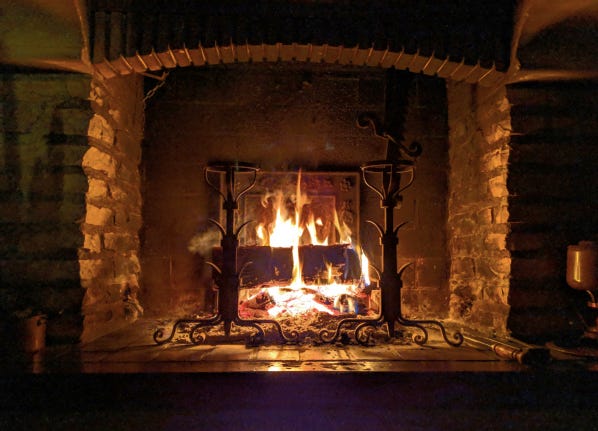
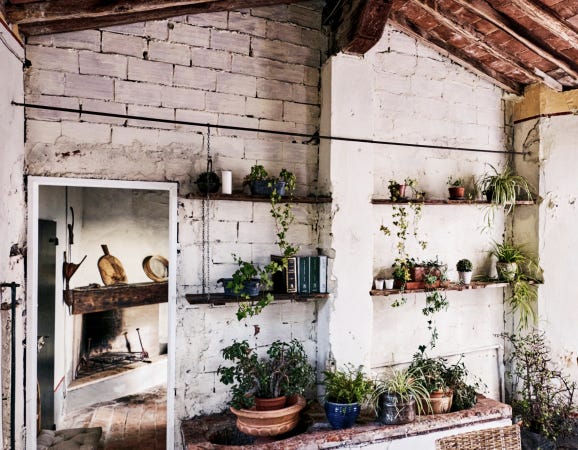

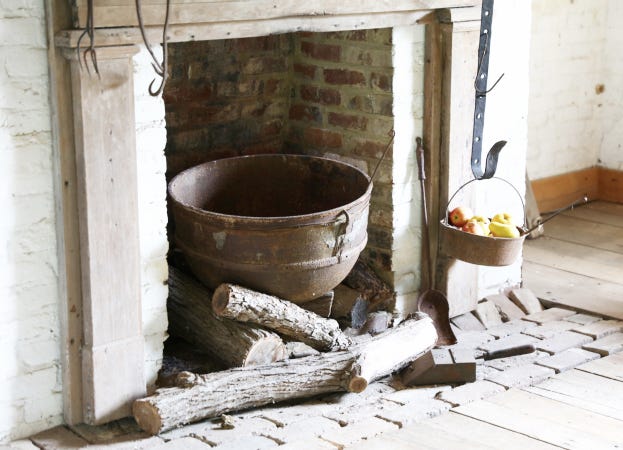
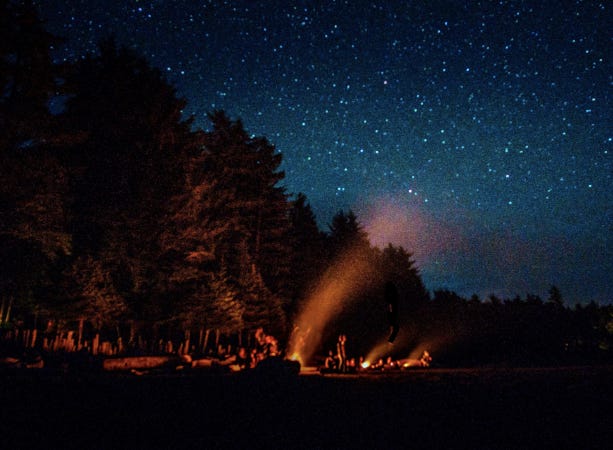
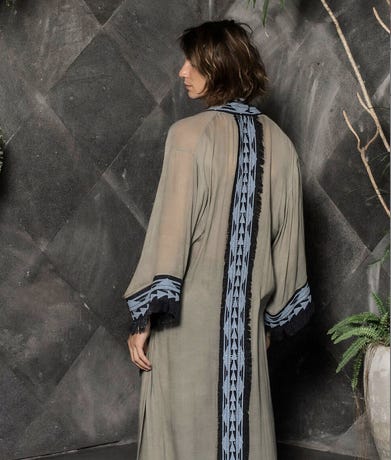
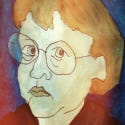
Love this series Sharron. You have created a world that is at once exotic and familiar. Your descriptions are absolute poetry and the use of the journal entries provides great insight into the mind of a man adapting to an alien culture and language. Beautiful work Sharron.
Damn, I like these women!
This whole series has been wonderful Sharron. So much potential to become a longer work of fiction if you're so inclined, but each piece stands alone well, too. You should have confidence in your sci-fi abilities and consider entering this installment in the Lunar Awards. Can't hurt to give it a shot!!